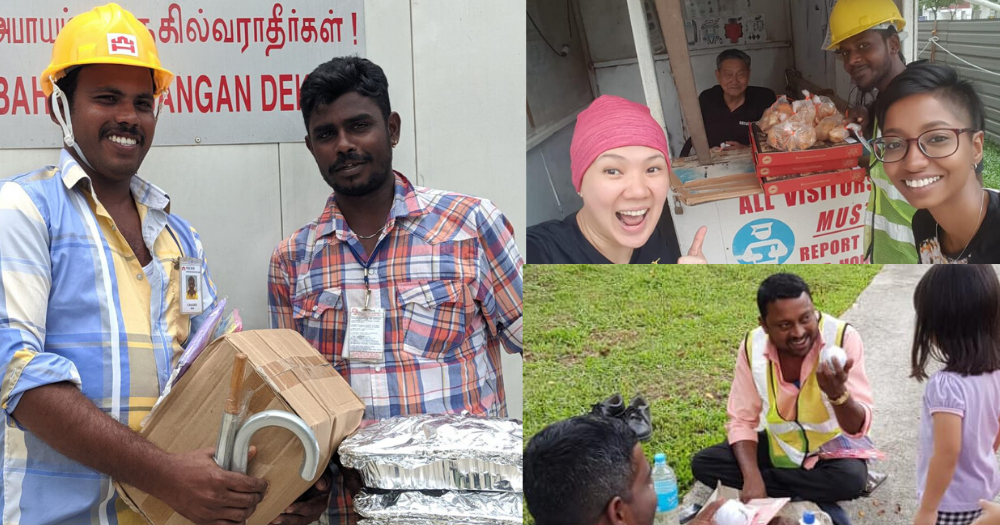Most Deepavali parties I have been invited to involved an evening of scrumptious food endlessly shoved onto my plate, beautiful fairy lights, and good music.
The first celebration I was invited to this year, however, was a little different.
Champions for migrant workers
On the scorching afternoon of Oct. 19, my colleagues and I found ourselves in Dipa Swaminathan's car looking for migrant workers all around Singapore to distribute food to.
Dipa is the founder of It's Raining Raincoats (IRR), a local initiative that aims to spread recognition and compassion towards migrant workers in Singapore.
Here are some of the initiatives that they have led:
It was founded in 2015 by Dipa, a Singaporean lawyer who is also a huge advocate for migrant workers in Singapore.
Some of you may remember her from this viral Facebook post from 2014 about a construction worker who attempted suicide:
Back then, Dipa was helping migrant workers on her own time, but after her story received more than 10,000 shares on Facebook, she was bound to do bigger things.Dipa revealed that she was first approached by the Singapore Kindness Movement (SKM) to start an event for migrant workers.
"So I suggested, why don't we encourage Singaporeans to carry disposable raincoats with them and if it rains, they can pass one on to the migrant workers."
The event proved to be a success and SKM even donated 5,000 raincoats to support the event.
Inspired by 'It's Raining Men'
But why is it called "It's Raining Raincoats"?
"I heard the song 'It's Raining Men', so I picked that name," quipped Dipa.
But really, she also drew inspiration from one of her earlier experiences helping a group of migrant workers at a construction site.
While driving us around Clementi in search of roadwork that she remembered driving past a few days ago, she shared:
"I was driving my son to his tennis practice and it was raining very heavily that day. I saw some construction workers who were only using the black garbage bags as raincoats but even then, they were soaking wet. Meanwhile, their supervisor was standing in a sheltered area with an umbrella in hand. I took a photo of the situation and then approached one of the workers to ask them what company they were working for."
Once she got home, she called the company and threatened to send the photos she took to the relevant authorities if they do not provide proper raincoats for the migrant workers.
The call ended abruptly without a single word from the person on the other line.
However, when she drove to the construction site again the following day, she knew her small voice was heard when she saw the workers decked in raincoats and wet boots.
From that day onwards, Dipa was bitten by the bug and wanted to help the community even more.
Pizzas, samosas, and data cards
This Deepavali, IRR has gathered donations of more than 250 vegetarian pizzas, 2,000 samosas and vadas as well as over 1,000 data cards from Singtel to distribute to the migrant workers all over Singapore.
My colleagues, Kane and Faris, and I decided to become volunteers ourselves to see what the hype is all about.
The huge amount of food looked intimidating at first, but it seemed manageable when we realised that more than 50 volunteers showed up to do their part for the community.
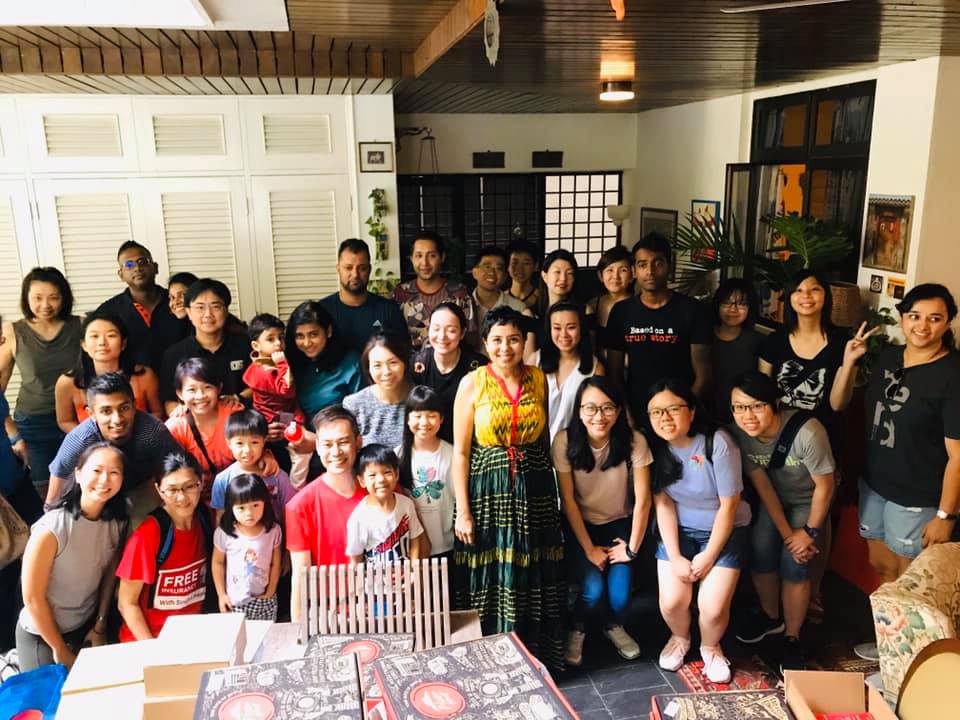 Just a fraction of the volunteers that day. Photo from It's Raining Raincoats.
Just a fraction of the volunteers that day. Photo from It's Raining Raincoats.
"We have close to 30 cars distributing the food today," said Dipa.
These volunteers come from all walks of life, from the very young:
 Photo by Fasiha Nazren
Photo by Fasiha Nazren
To the young at heart.
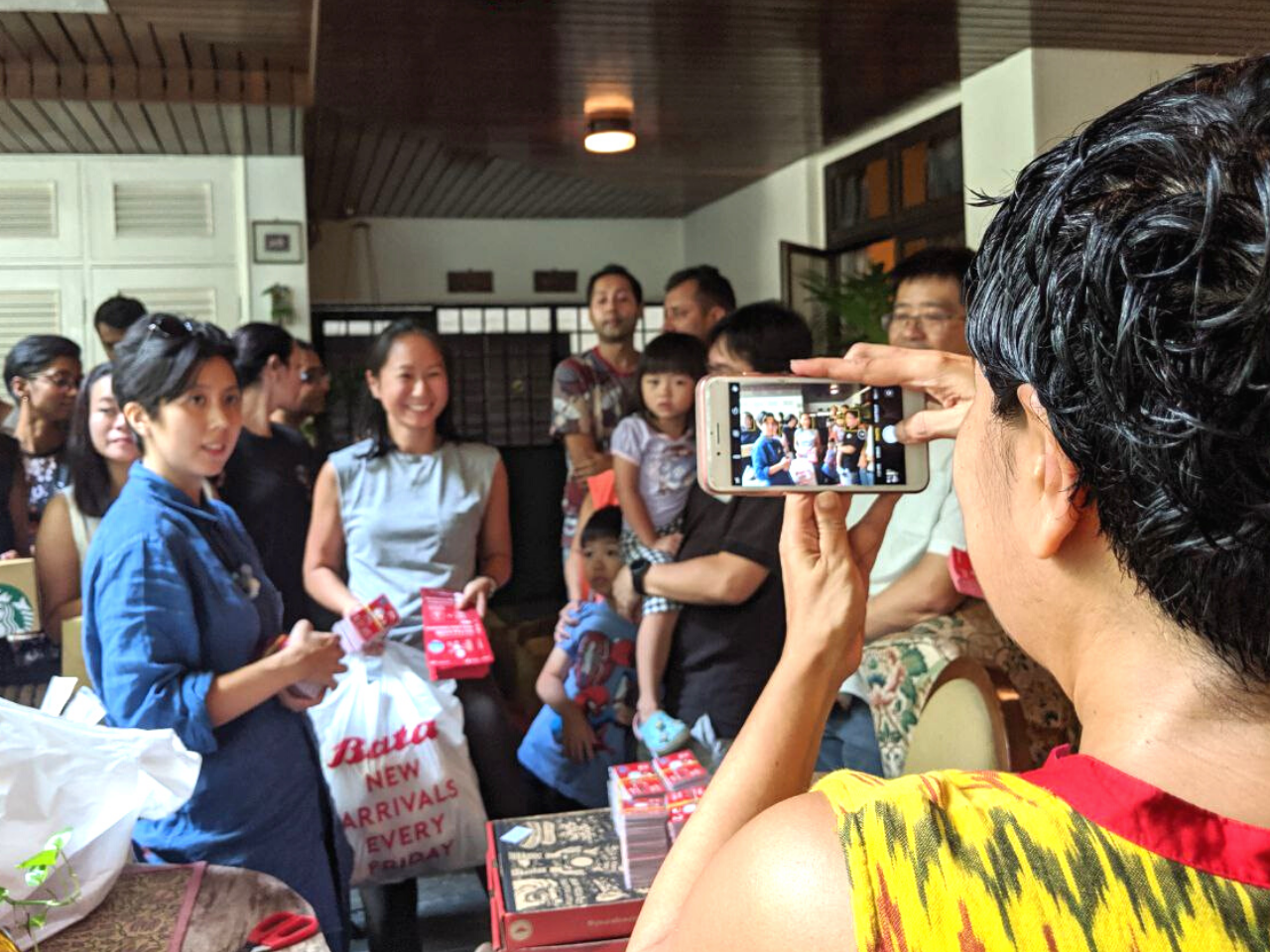 Dipa taking a photo of the volunteers before they set off. Photo by Fasiha Nazren
Dipa taking a photo of the volunteers before they set off. Photo by Fasiha Nazren
Everyone (apart from us, a bunch of clumsy first-time volunteers) worked like clockwork, storing the trays of food and data cards into the cars and then setting off to different parts of Singapore to distribute them.
Looking for construction sites
Of course, not everything ran as smoothly as expected.
The first obstacle of the day happened when a batch of samosas arrived close to 12pm, which was an hour after the scheduled distribution time.
Dipa also expressed her concerns to us that noon may also be the time for the workers to break for lunch.
We kept our eyes peeled for the slightest sign of activity at every roadwork or construction site while she drove.
Today, these workers that I usually don't look out for on a day-to-day basis seemed more invisible than they already were.
Grateful for samosas
After close to 15 minutes, we finally found a group of migrant workers resting along the concrete pavement near a site of a half-built house in Bukit Timah.
Their scrunched up faces (because of the hot sun and waking up from their slumber) turned into grateful smiles when we approached them with a tray of hot samosas and data cards.
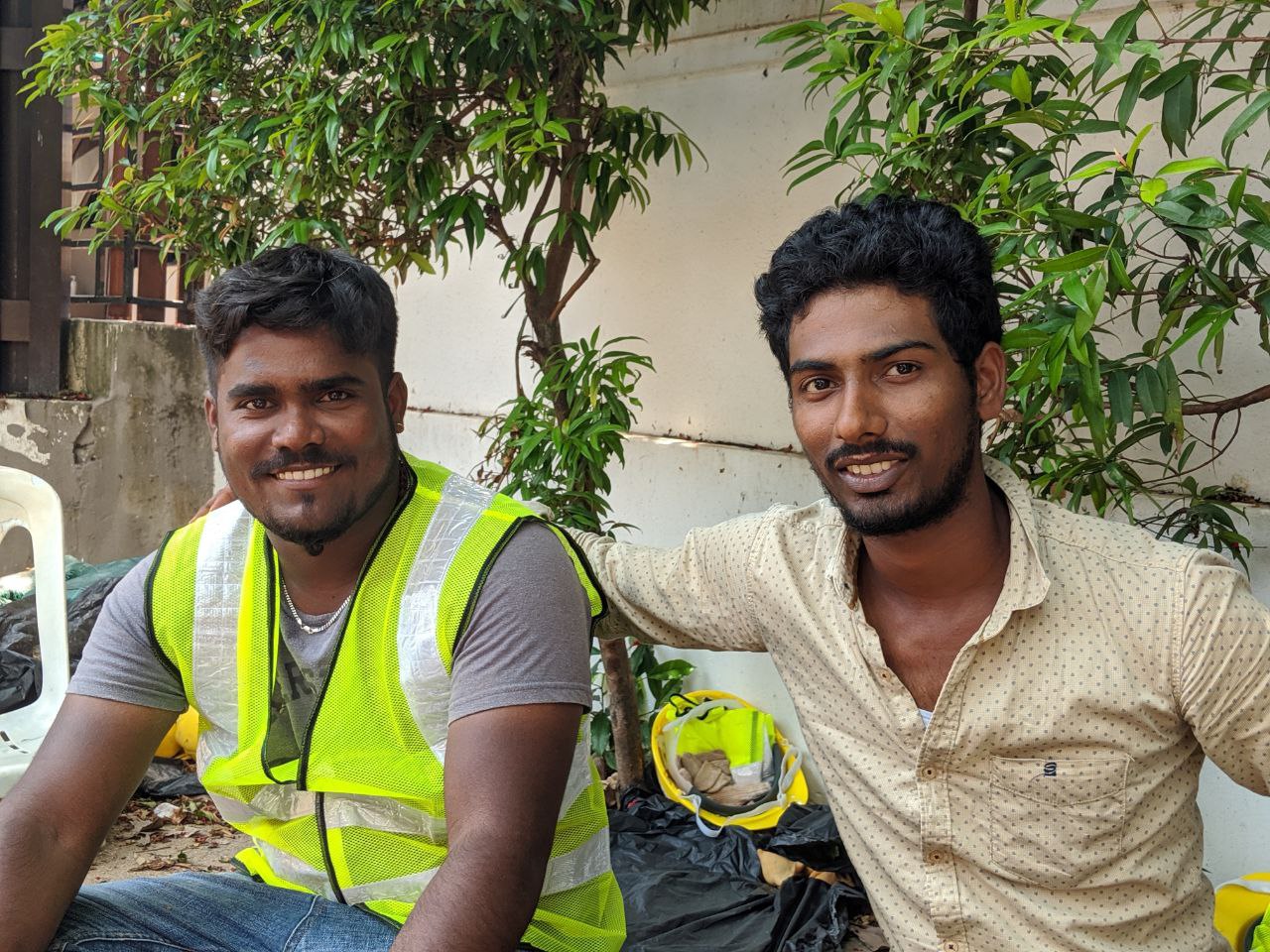 Photo by Fasiha Nazren
Photo by Fasiha Nazren
"They're humans too, you know. Just like us, they have emotional needs and want to call their family during the festive season," said Dipa.
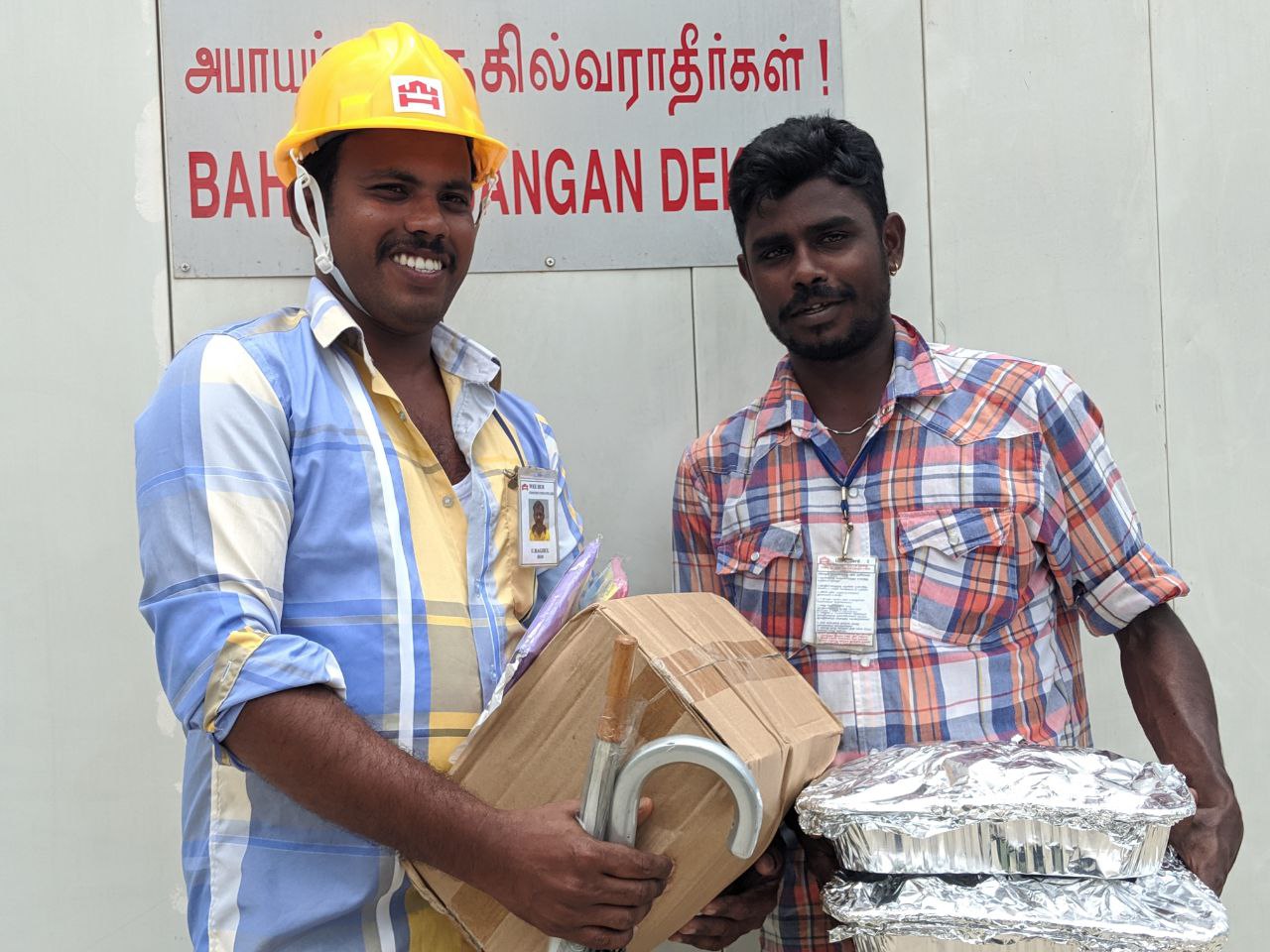 Apart from food, raincoats and umbrellas were also given in case they needed to brave the rain. Photo by Fasiha Nazren
Apart from food, raincoats and umbrellas were also given in case they needed to brave the rain. Photo by Fasiha Nazren
We also gave out the IRR name cards which had Dipa's personal number on it, should they need any help from her.
A second family
As they ate their snacks, we sat with them and tried to get to know them a little better.
Some of them have worked in the construction industry for six months, while others have been here for as long as eight years.
When asked what they were going to do this Deepavali in Singapore, we were met with a pregnant pause followed by a short chorus of laughter.
"We go Tekka Market and happy with friends," said one of the workers.
I couldn't help but to feel for them, knowing that other Hindu devotees in Singapore get to celebrate Deepavali with their loved ones, while these workers are content enough to be together with their colleagues who have now become their second family.
Unfortunately, there was only so much we could talk about because of the huge language barrier between us. They couldn't speak English very well while we didn't even know a single word of Tamil.
However, gratitude is something that transcends all boundaries and they didn't forget to thank us profusely before we left to find more migrant workers.
A small part to play
In the next hour, we managed to finish giving out a few more trays of snacks to several other roadwork and construction sites.
Kane and Faris even ran on foot to a lorry full of migrant workers during a red light just to pass them a tray of samosas:
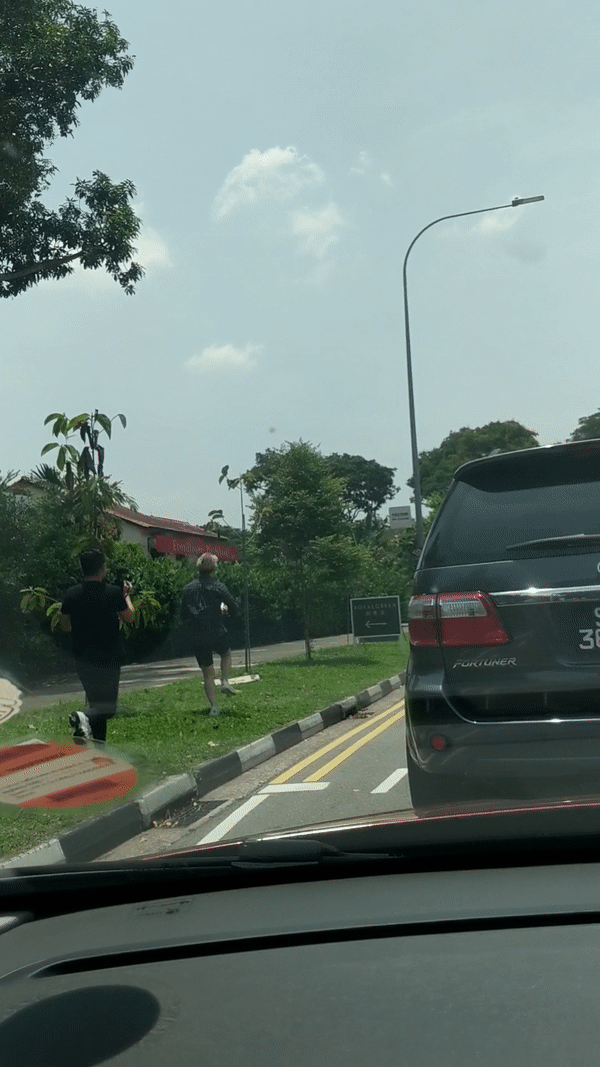
By the time we were done, we were sweating buckets from running around in the 34°c weather.
This, however, is just a fraction of what the volunteers at IRR do, and an even smaller part of what the construction workers have to face as they toil under the sun.
True meaning of Deepavali
But all these efforts seem worthwhile after we witnessed how elated these workers looked after giving them something as small as a tasty vada.
It was made even better when Dipa scrolled through her WhatsApp and showed us the long list of "thank yous" from the migrant workers who had received her name card throughout the day, as well as the photos that the volunteers sent:
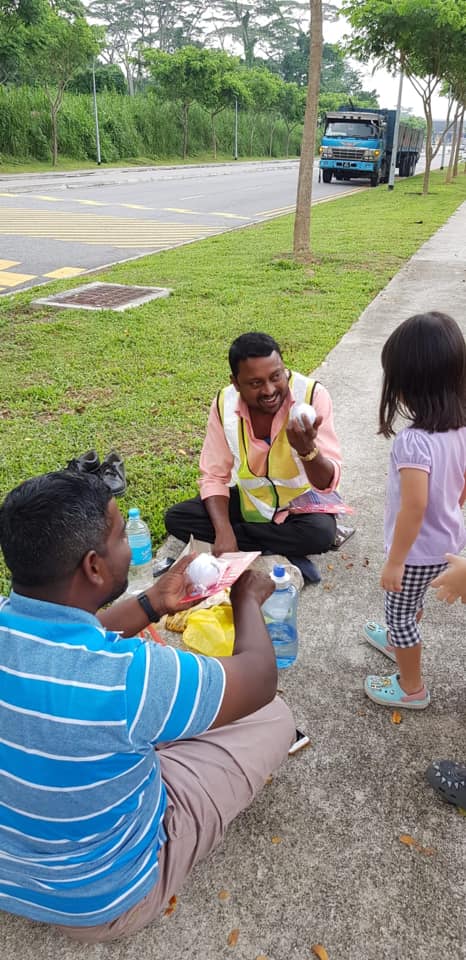 Photo from It's Raining Raincoats
Photo from It's Raining Raincoats
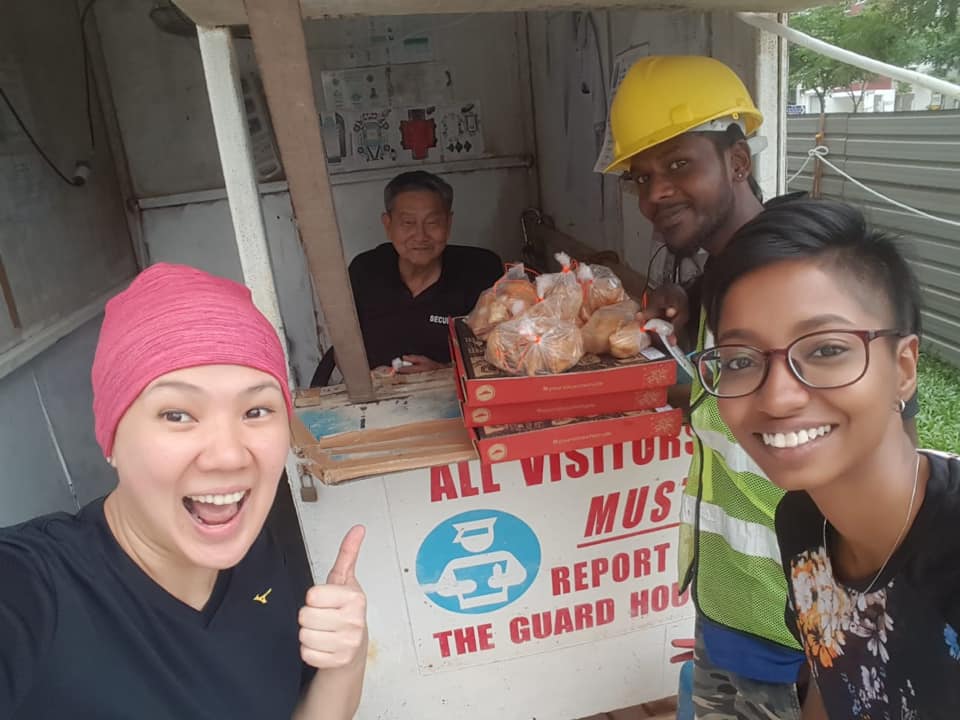 Photo from It's Raining Raincoats
Photo from It's Raining Raincoats
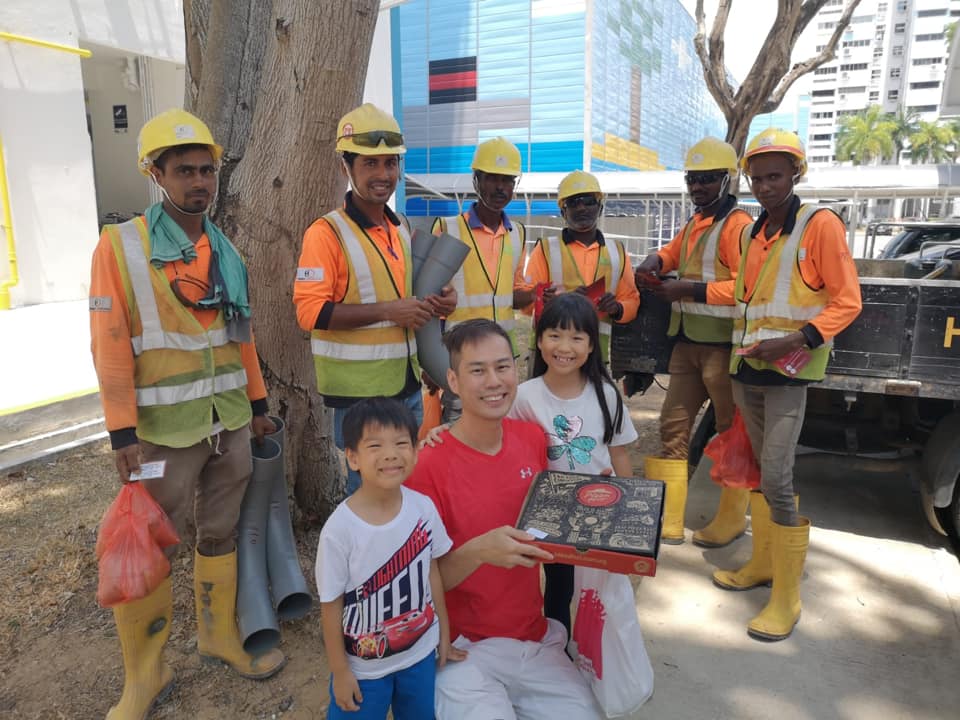 Photo from It's Raining Raincoats
Photo from It's Raining Raincoats
Among other things, the Festival of Lights celebrates the triumph of light over darkness, just like how these volunteers made Singapore a brighter and friendlier place for our migrant workers in Singapore.
Related video:
Top image courtesy of It's Raining Raincoats and Fasiha Nazren
If you like what you read, follow us on Facebook, Instagram, Twitter and Telegram to get the latest updates.
